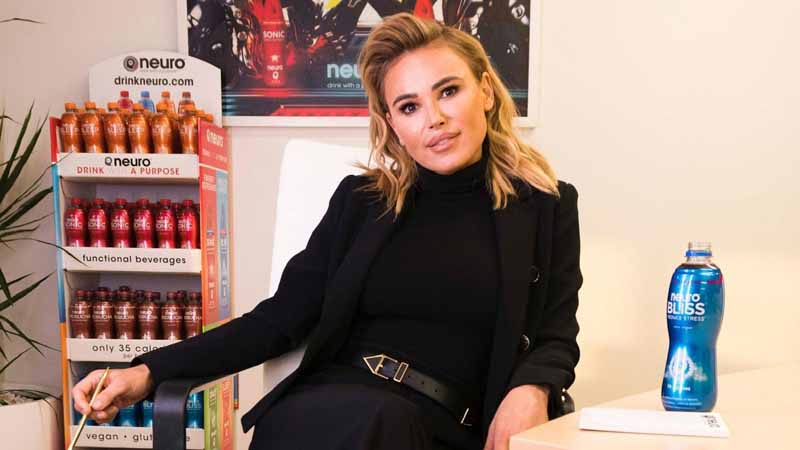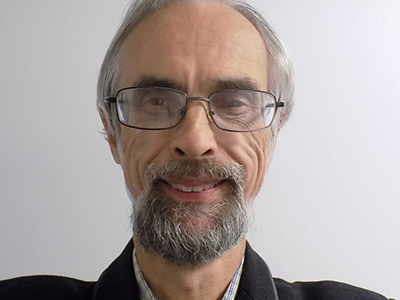Diana Jenkins's Neuro Lifestyle Beverages Save the World One Drink at a Time
Sanela Diana Jenkins's early life would not have led anyone to suspect that she would become the queen of healthier lifestyle beverages. Her Neuro Brands's low-sugar beverages are for everything from building immunity to improving customers' sleep. The multi-million dollar a year brand is found in over 70,000 retailers around the US, including Walmart, Albertson’s, Publix, Target, Rite Aid, CVS, and 7-Eleven (as well as, of course, Amazon).

Jenkins was born in Sarajevo, which had been a trade center and multicultural city for hundreds of years before it became the capital of Bosnia and Herzegovina, one of six federated republics in Yugoslavia, in 1945. Her brother, Irnis, was two years younger. Mom was an accountant and dad was an economist, so growing up, she naturally planned to earn a degree in economics at the University of Sarajevo.
"We lived in a tiny flat in a communist country, so our circumstances were limited, but we were very tight," she recalled for Startup Savant. "My parents were loving and supportive and my incredible brother and I were very close."
Then in 1992, Bosnia and Herzegovina declared its independence from Yugoslavia. Some 18,000 forces from the Yugoslav People's Army and Bosnian ethnic Serbs encircled Sarajevo and began shelling the city on April 5. It would not end until February 29, 1996, the longest siege in modern military history, resulting in 11,541 deaths and 56,000 wounded. The wider war is estimated to have caused the deaths of 97,207, according to the Research and Documentation Center in Sarajevo, mostly Bosniaks. It also displaced 2.2 million, making it the most devastating conflict in Europe since World War II.
London Calling
At the start of the war, virtually penniless, Jenkins escaped on foot to Croatia and eventually made it to London. Later, she learned that paramilitaries had shot and killed her beloved brother, a peacekeeper in a village called Kljuc when heavily armed Serbian forces started their ethnic cleansing toward the very end of the aggression. Her parents live with her today in Los Angeles, though they often return to Sarajevo, which is again thriving. "They are my rock and I consider them my mentors," she added.
Once Jenkins arrived in London as a refugee, she says she wanted to work hard to be able to have a successful business, but also so that she would be in a position to help her native country and improve the human condition elsewhere in the world.
She worked odd jobs and studied English at night, eventually receiving an honors degree in computer science and economics at City University. Soon after graduation, her next move saw her acquire one of the top swimwear lines in the world, Melissa Odabash – a celebrity favorite which Vogue referred to as “the Ferraris of swimwear.” In 1999, she married bank executive Roger Jenkins and had two children, Innis and Eneya, before an amicable divorce in 2011.
Her outgoing personality widened Jenkins’s circle of friends, which eventually included Elton John, Sarah Ferguson, Bono, Michael Caine, and filmmaker Guy Ritchie, who would support her business and humanitarian activities.
Jenkins's Neuro Brands Brainstorm
A frequent visitor to Los Angeles where she moved in 2008, Jenkins widened her circle of friends, who generously supported her philanthropic projects and human rights causes. The following year, she brought 100 of them together (including George Clooney, Cindy Crawford, and Scarlett Johansson) to pose for her coffee table photo book Room 23, sales of which benefited her human rights foundations. Health-minded Hollywood was also an ideal place to incubate her current passion.
"I have always been a health and fitness enthusiast," Jenkins explained. "I started Neuro Brands in 2009, because I saw a need to address what I thought was lacking in the lifestyle beverage space. Most of what I saw on shelves were bottles and cans that had long lists of ingredients, were mostly energy drinks, full of sugar and, quite frankly, didn't taste very good. I knew I could create functional drinks that were better in every way to serve customers who might be in nonstop seven-day work cycles and needed to de-stress, and sleep better."
But competition for shelf space was fierce and she was trying to overcome barriers in an industry that was overwhelmingly dominated by men. Shattering that glass ceiling took some time.
"You can imagine what some of my initial reactions were. Not only was I a woman, but one with a Bosnian accent telling them that they are overlooking major consumer needs in the beverage space," she says. "I had to fight every step of the way and was given all kinds of excuses, that my formulas weren't needed, that customers wouldn't be interested, that there wasn't any room available. I initially did everything myself--the concept, the design, the branding, packaging, and getting scientists to come up with the right formulas. I am still the captain of the ship, but I pulled together a fantastic team to implement my vision and I think my passion and love for the brand has been contagious. We all work extremely hard, and it is especially important now that leaders everywhere be sure that everyone at every level in their organizations knows how much they are appreciated."
Whether a drink improves digestion and satiety (neuro TRIM), de-stressing (neuro BLISS), immune support (neuro IMMUNE), or better sleep (neuro SLEEP), each is vegan, GMO-free, gluten-free, lactose-free, and certified kosher, and, just as important, tastes great, she adds. The line is increasingly able to be made from sustainable ingredients to minimize its impact on the planet.
"I hear from customers by email, phone, and in-person who tell me our beverages changed their lives, helping them sleep to recover from an accident or to lose weight after failing at so many other attempts," she said. "I think COVID has been a wake-up call to many people that they need to be more proactive when it comes to looking after the health of their mind and body."
Never Forget
Jenkins is just as passionate about her humanitarian work.
"You cannot imagine the level of cruelty, inhumanity, and disregard for human life, once the aggression in Bosnia and Herzegovina began," Jenkins said. "It changes you. I think it is the duty of every person to do their best to help others and to fight for their human rights and dignity."
In 2008, she established the Sanela Diana Jenkins Human Rights Project at the School of Law at the University of California, Los Angeles. It emphasizes legal and political advocacy regarding international war crimes and justice, using technology to map abuse and enable witnesses to upload documentation of human rights violations anywhere. It is the first endowed program on international justice at any law school in the western US In 2012, what is now known as The Hague's Institute for Innovation of Law recognized it as one of the "World's Top Three Justice Innovations."
And the 2013 Computerworld Laureate Ceremony and Awards Gala recognized the International Criminal Court Forum, created by the Jenkins Human Rights Project, for its work advancing international law through digital media.
Jenkins also founded the IrnisCatic Foundation in 2002 in memory of her murdered brother, which continues to provide essential funding for medical facilities at the University of Sarajevo.
"The secondary consequences of war last generations," she said. "Children grow up in a war suffering from malnutrition, poor educational opportunities, and the loss of family members. Too many then have lowered physical and cognitive abilities, resulting in disadvantages even after the physical infrastructure is rebuilt."
In 2009, she was given the Peace Connection Prize from the Center for Peace and Multi-Ethic Cooperation. In 2018, she was honored at a gala of the Advisory Council for Bosnia and Herzegovina in Washington D.C. for her ongoing philanthropic activities there. And in 2013, she received the Isa-beg Ishakovic Patriotism Award "for her global humanitarianism."
In 2010, she and actor Sean Penn spent weeks in Haiti to help the country recover from an earthquake, establishing the Jenkins-Penn Haitian Relief Organization to deliver hospital supplies and medical care to the thousands who were displaced.
Jenkins was also honored with the 2012 Enduring Vision award by the Elton John AIDS Foundation.
Sanela Diana Jenkins exemplifies that business success is only as good as how you use it to change the human condition.
About the Author

Scott S. Smith has had over 2,000 articles and interviews published in nearly 200 media, including Los Angeles Magazine, American Airlines’ American Way, and Investor’s Business Daily. His interview subjects have included Bill Gates, Richard Branson, Meg Whitman, Reed Hastings, Howard Schultz, Larry Ellison, Kathy Ireland, and Quincy Jones.
Startup Resources
- Learn more about Startups
- Visit the TRUiC Business Name Generator
- Check out the TRUiC Logo Maker
- Read our Business Formation Services Review
- Find Startup Ideas
- Explore Business Resources
Form Your Startup
Ready to formally establish your startup? Click below to read our review of the best business formation services!
Best Business Formation Services